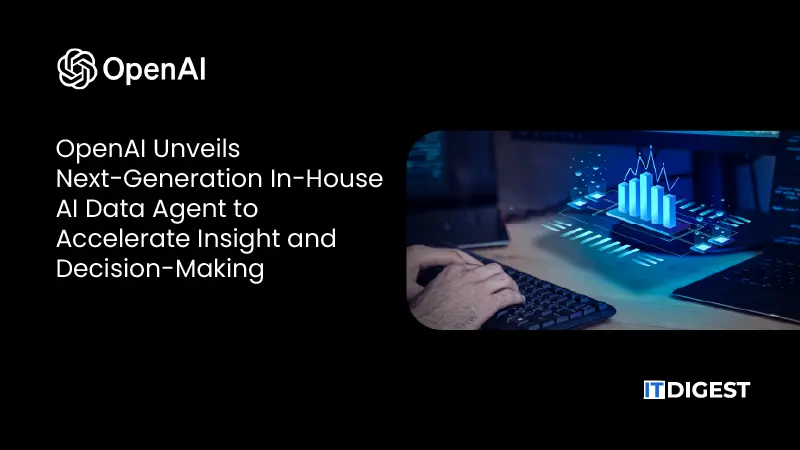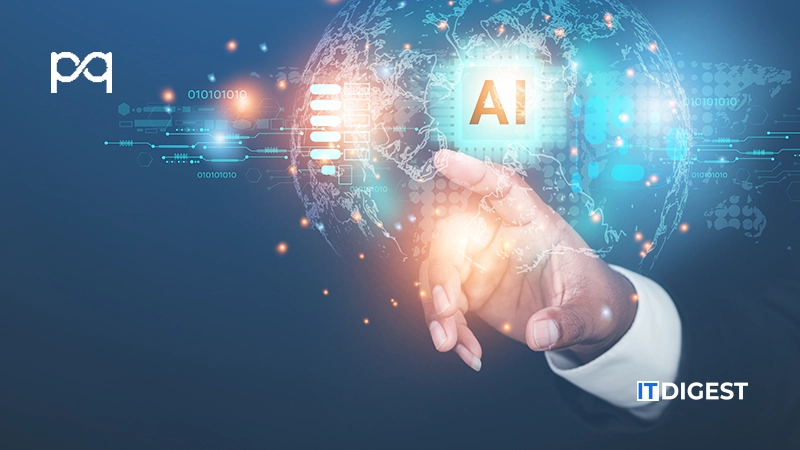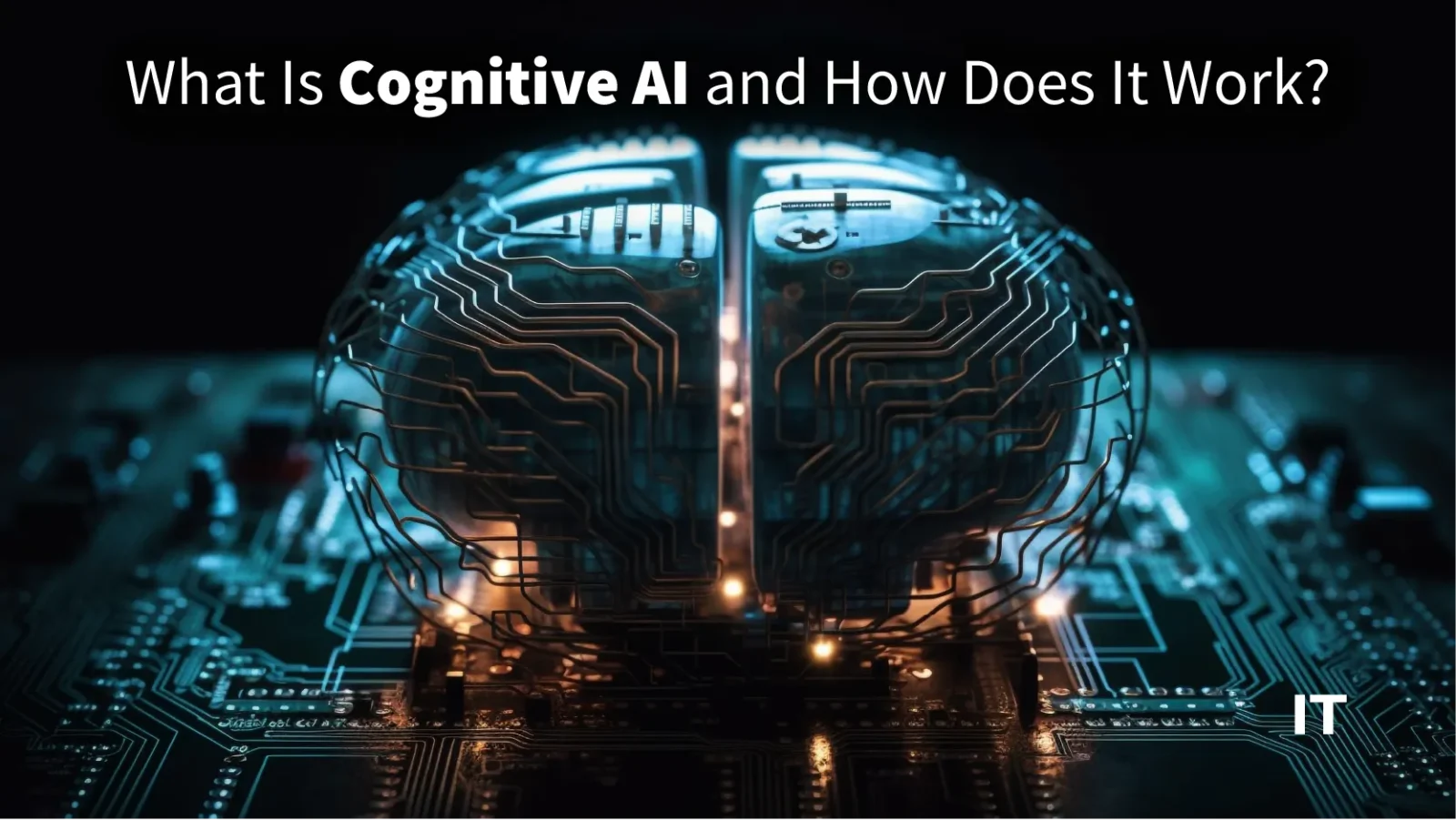In recent years, artificial intelligence (AI) has advanced remarkably, changing several industries as well as our way of life and employment. Cognitive AI is an intriguing area of AI that has attracted a lot of interest. Take ChatGPT, Gemini, Gemma, etc for example. It seeks to imitate human thought processes and decision-making abilities, in contrast to classic AI systems that concentrate on particular tasks. It provides insightful analysis and recommendations by fusing learning, reasoning, and data analysis. It can also improve problem-solving and decision-making and enable personalized experiences. In this post, we shall examine the significance, uses, and more.
What Is Cognitive AI?
Software that mimics how human brains function in an attempt to think and learn is known as cognitive artificial intelligence or cognitive AI. To provide more pertinent answers, it uses machine learning (ML) and natural language processing (NLP) to try and decipher the meaning behind user searches. These answers are provided in terms that people would understand and are the outcome of sifting through enormous amounts of data. It is frequently utilized to enhance communication, decision-making, and problem-solving skills.
Retrieval augmented generation, or RAG AI, is distinct from cognitive artificial intelligence in that RAG builds on the advantages of both generative and retrieval AI, while generative AI generates more precise and context-aware responses in response to human inputs.
Also Read: What is Hyperautomation and How Can Businesses Automate Their Operations?
Why Is Cognitive AI Important?
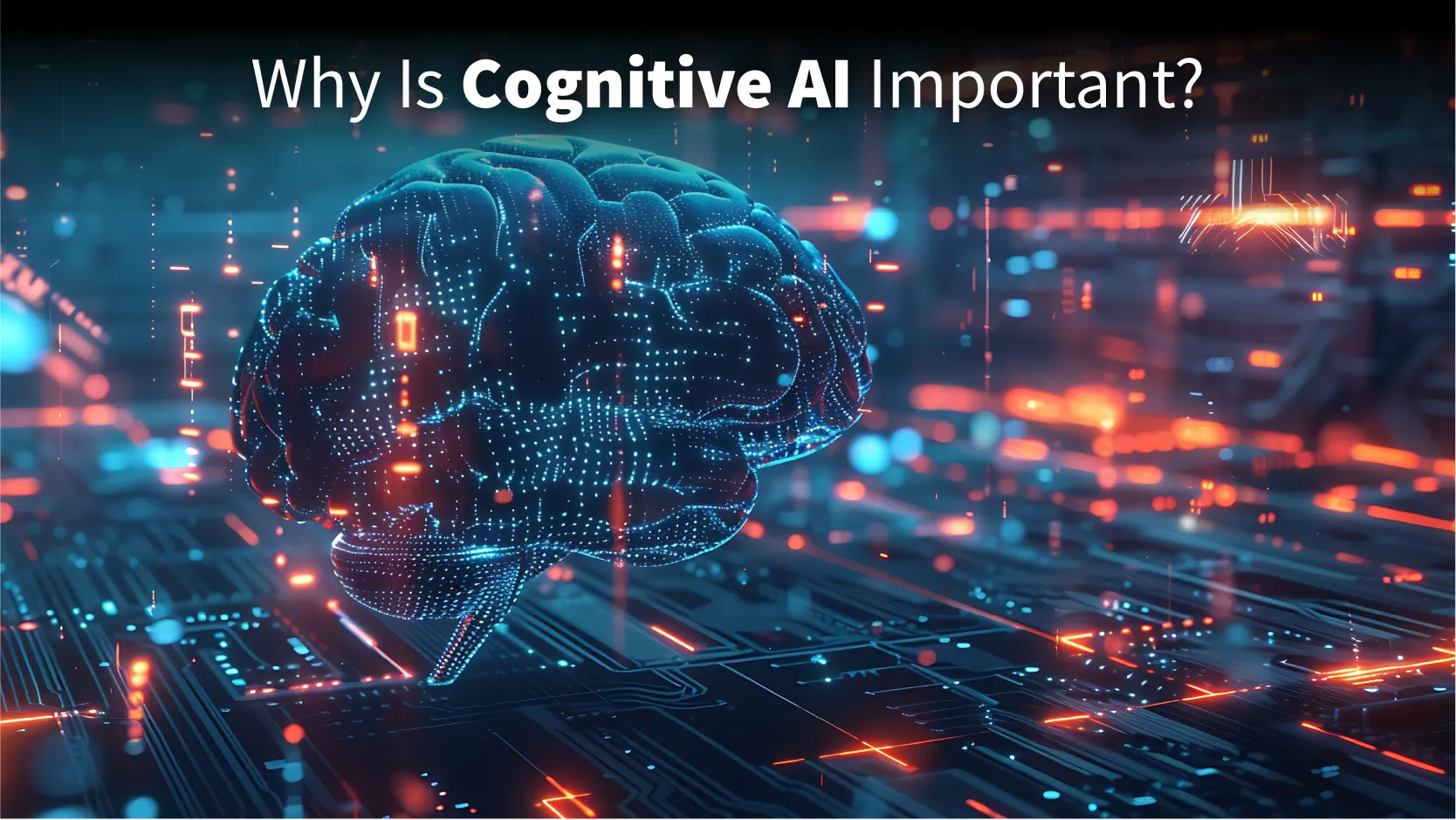 Better decision-making: It can process huge amounts of data quickly and accurately and provide intelligent insights and recommendations to inform decision-making. So individuals and businesses can make more informed and effective decisions.
Better decision-making: It can process huge amounts of data quickly and accurately and provide intelligent insights and recommendations to inform decision-making. So individuals and businesses can make more informed and effective decisions.- Problem-solving: It can simulate human thought processes; machines can understand complex problems, analyze patterns, and generate hypotheses. So more efficient and effective problem solving across many domains.
- Personalization: It can analyze user preferences, behavior, and context to deliver personalization. Seen in applications like personalized recommendations in e-commerce or tailored healthcare treatment plans.
- Data analysis: With the ability to process and analyze large datasets quickly, it can uncover patterns, trends, and insights that humans can’t see on their own. Especially valuable in healthcare, fintech, and research.
- Human-machine interaction: It can make human-machine interaction more intuitive, natural, and effective. So better customer service, more efficient workflows, and better collaboration between humans and AI.
- Automation and efficiency: It can automate repetitive tasks, freeing up human resources for more complex and creative work. So more productivity, cost savings, and better operational efficiency.
How does Cognitive AI Work?
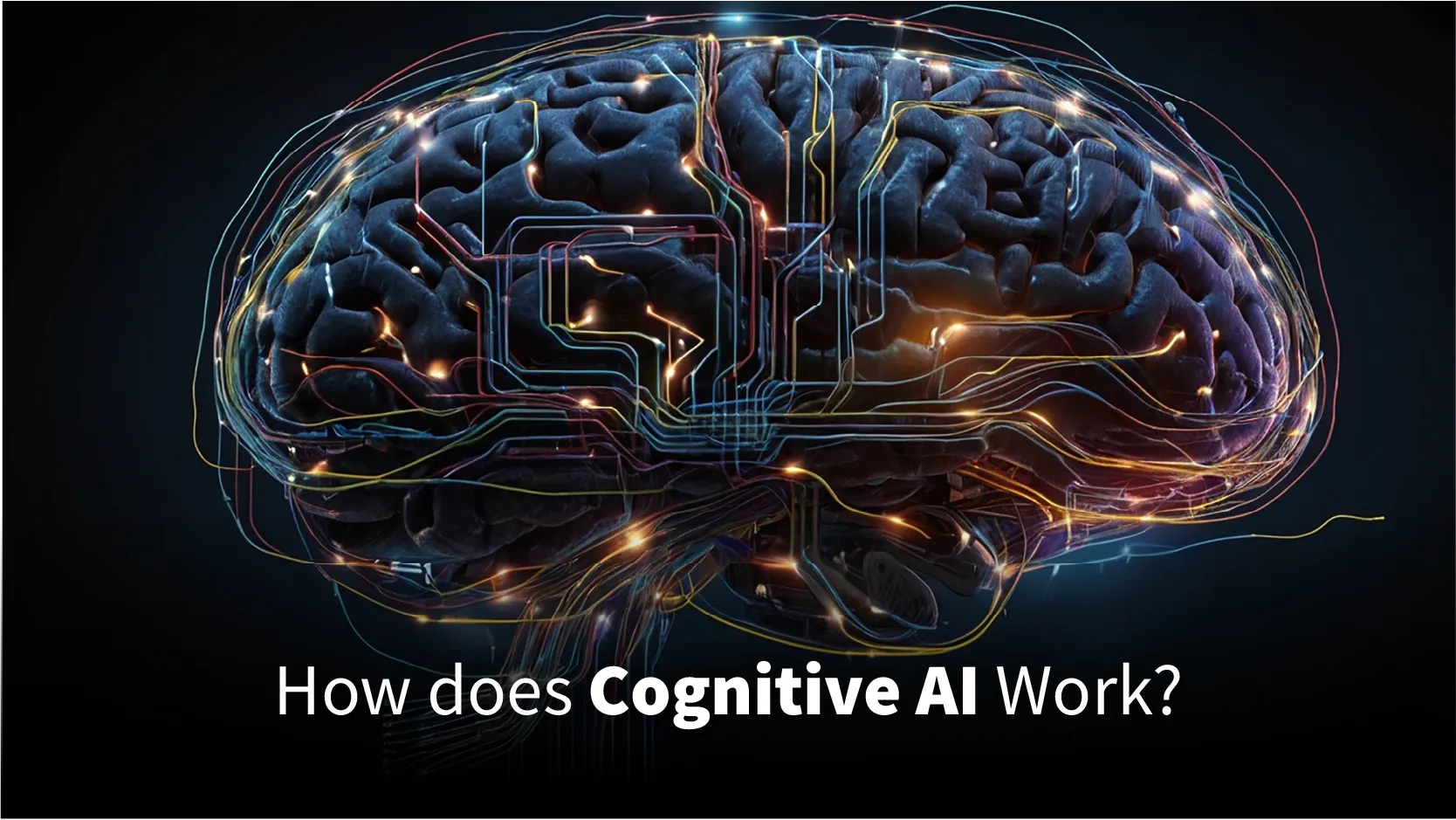 With constant learning from interactions and outcomes, cognitive AI systems help humans make judgments. This technology has applications in customer service, finance, healthcare, and other industries. It supports tasks including illness diagnosis, tailored recommendations, and risk assessment. By imitating human mental processes, cognitive artificial intelligence aims to enhance human capabilities in problem-solving, data processing, and information exchange.
With constant learning from interactions and outcomes, cognitive AI systems help humans make judgments. This technology has applications in customer service, finance, healthcare, and other industries. It supports tasks including illness diagnosis, tailored recommendations, and risk assessment. By imitating human mental processes, cognitive artificial intelligence aims to enhance human capabilities in problem-solving, data processing, and information exchange.
Cognitive AI prioritizes human participation over accuracy alone, in contrast to traditional AI. It aims to provide adaptability and human-like cognitive functions. As technology advances, it has the potential to completely transform several areas of our lives, including finance, healthcare, education, and more.
For the ethical and advantageous application of cognitive technologies, data privacy, regulatory compliance, and ethical issues need to be carefully considered. All things considered, this technology presents a viable method for enhancing human abilities and streamlining decision-making in intricate situations.
What Is The Difference Between Generative AI and Cognitive AI?
Generative AI and cognitive AI are two types of artificial intelligence (AI). Generative AI makes new stuff—text or images—by looking at patterns and data that already exist. Algorithms create original output with a dash of human creativity.
Cognitive AI mimics human thinking and decision-making. It’s more than making content; it’s about language, learning, reasoning, and problem-solving. Cognitive systems read data, know the context, and give human intelligence a boost.
Generative AI makes content, and cognitive AI understands humans; they’re not opposites. They can work together and maybe even merge in the future. By putting cognitive and generative AI together, AI systems will be more productive, more efficient, and more creative.
Application of Cognitive AI
- Self-driving cars: It is the foundation for autonomous vehicles. These cars use AI to see, decide, and navigate without a human driver. They gather information from sensors in a way that mirrors human perception, so they can understand what’s happening on the road—other cars, pedestrians, and traffic signs. This technological advancement can change the driving experience.
- Trading: In finance, cognitive artificial intelligence is used to automate trading systems. These systems analyze market trends, make predictions, and execute trades without human intervention. Because it can react to market changes so quickly, it can execute trades that are not only faster but more profitable.
- Content creation: It is also being used to generate written content, articles, ads, product descriptions, and other digital and print assets. Media companies are using cognitive artificial intelligence to write news stories based on real-time data, such as sports results or financial reports. The potential for cognitive to streamline and speed up content creation is huge, resulting in cost savings and increased revenue.
- Smart homes: In smart homes, cognitive artificial intelligence can control lighting, temperature, and security systems, all tailored to the homeowner’s preferences. It can even learn from the homeowner’s habits and make automatic adjustments to make life more comfortable and save energy. With this AI advancement, we can reduce energy consumption and be more green.
Conclusively
An important development in the field of artificial intelligence is cognitive AI. Its broad ramifications across sectors stem from its capacity to analyze data, imitate human thought processes, and offer intelligent insights. It can completely change how humans work and interact with technology since it can improve decision-making, solve problems better, provide tailored experiences, and automate tasks. Cognitive artificial intelligence will surely play a crucial role in enhancing human capacities, spurring innovation, and influencing the development of AI-driven systems in the future as we continue to realize its full potential.









